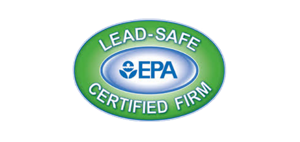Water damage can be a severe issue for homeowners, and often, the extent of the damage is not immediately evident. In some cases, the damage is irreversible and has long-lasting effects on the structure and integrity of your home.
If you suspect that your home has water damage, it’s crucial to take immediate action. By addressing the issue promptly, you may be able to mitigate permanent damage. However, without swift intervention, water damage can lead to costly repairs and make your home uninhabitable.
In this section, we will explore the potential permanence of water damage and provide you with ways to address the problem, whether you choose to hire a professional or opt for DIY solutions. You’ll learn how to identify the signs of permanent damage, assess the extent of the water damage, and prevent future occurrences.
Key Takeaways
- To minimize permanent water damage, timely intervention is crucial.
- Professional water damage restoration services can mitigate and repair severe damage.
- If you chose to attempt your own repairs, be sure to have tools and supplies ready, and exercise caution.
- Preventing future water damage is key, and regular maintenance and proactive measures can help avoid significant harm to your home.
Understanding Water Damage
Water damage can occur in a variety of ways, including flooding, leaks, or burst pipes. It’s important to be able to recognize the signs of water damage so that you can take immediate action to prevent any potential permanent damage to your home. Understanding the types and causes of water damage is the first step in assessing the situation.
Flooding is one of the most common causes of water damage in homes. It can result from heavy rain, snowmelt, or a burst dam or levee. Flooding can cause severe damage to your home, from waterlogged carpets and furniture to structural damage to your foundation. If you live in an area prone to flooding, making sure you have proper drainage systems in place can help prevent damage in the event of a flood.
Leaks are another common cause of water damage and can result from burst pipes, faulty appliances, or damaged roofing. Even small leaks can cause significant damage over time, including mold growth, rotting wood, and damage to your walls and ceilings. It’s important to address leaks promptly to prevent further damage from occurring.
Signs of Potential Permanent Damage
Water damage, if not addressed promptly, can lead to permanent harm to your property. Recognizing the signs of potential permanent damage is crucial to take effective action. Some of the signs to look out for include:
- Mold growth: Mold can develop within 24 to 48 hours after water exposure. If left unaddressed, it can cause structural damage and pose health risks.
- Structural issues: Water damage can weaken or destroy the structural integrity of your property. Look for cracks in walls or ceilings and any signs of buckling or sagging.
- Warped materials: Water damage can cause materials such as wood or drywall to warp, bend or bubble. These materials need to be replaced to prevent further damage and maintain the structural integrity of your property.
- Foul odors: A musty or damp smell can indicate long-lasting moisture and water damage, signifying the need for a thorough inspection.
Experiencing any of these signs warrants attention and remediation as soon as possible to prevent further damage and save repair costs down the road.
| Temporary Damage | Permanent Damage | |
|---|---|---|
| Mold growth: | Surface mold can typically be cleaned and removed. | Mold that has penetrated materials and developed into colonies may require professional remediation and replacement of the affected materials. |
| Structural issues: | Minor damage can be corrected with simple repairs. | Severe damage that undermines the structural integrity of your property may require major reconstruction or even condemnation of the building. |
| Warped materials: | In some cases, warping can be reversed, or the affected material can be replaced. | Severe warping indicates irreversible damage and requires replacement to restore structural integrity. |
| Foul odors: | Temporary odors can be eliminated by cleaning and drying the area. | Odors that persist after drying indicate trapped moisture and potential mold, requiring professional attention. |
It’s essential to address water damage as soon as possible to avoid permanent harm to your property. By recognizing these signs and taking prompt action, you can mitigate the effects of water damage and prevent further costs down the road.
Assessing the Extent of Water Damage
To determine the level of damage caused by water, a thorough assessment is necessary. Try locating the source of the water damage and then analyze the extent of the damage. Inspect the walls, floors, ceilings, and personal belongings that may have been affected by water.
Signs of water damage that require professional assistance include warped floors, paint, or wallpaper, rusted pipes, mold growth, and unpleasant odors.
Be sure to carefully document the damage through photographs and notes to aid in creating an effective restoration plan.
In severe cases, calling a professional water damage restoration service is highly recommended. They have the experience and tools necessary to analyze the extent of the damage, assess the risk of permanent damage, and provide the most effective solutions.
Once the proper assessment has been completed, you can then determine the steps needed to address the water damage. Whether you decide to take a DIY approach or hire a professional water damage restoration service, addressing water damage promptly is crucial in avoiding any further damage.
Professional Water Damage Restoration
Water damage can cause severe and long-term effects on your property. Hiring a professional water damage restoration service is a crucial step in addressing potential permanent damage and protecting your home. Restoration experts have the necessary knowledge, skills, and equipment to mitigate the damage and restore your property to its pre-damage condition.
Some benefits of consulting professional water damage restoration services include:
- 24/7 availability: Water damage can occur at any time, and quick action is necessary to prevent further damage. Restoration professionals are available 24/7 to respond to emergencies promptly.
- Thorough assessment: Professionals will assess the extent of the damage, including hidden areas that may be damaged. They will identify all the affected areas and provide an accurate estimate of the cost and time required for restoration.
- Effective mitigation: Professionals use specialized equipment and techniques to remove excess water and prevent further damage, including the growth of mold or mildew. They will also salvage all the restorable items and discard any that are beyond repair.
- Complete restoration: Restoration experts will repair and restore all affected areas, including walls, floors, and ceilings. They will also clean and sanitize the property to prevent any health hazards.
By hiring water damage restoration professionals, you will save time, money, and effort, and reduce the risk of future damage. Do not hesitate to contact a reliable restoration service provider in case of water damage.
Professional water damage restoration services can prevent permanent damage to your property.
DIY Water Damage Solutions
When it comes to water damage, time is of the essence. Delaying repairs can lead to permanent damage to your property. While it’s essential to consult a professional restoration service in severe cases, some simple DIY solutions can help minimize the damage.
Here are some practical tips and solutions that you can implement:
| Tips | Solutions |
|---|---|
|
|
If you’re attempting repairs on your own, always prioritize safety. Wear protective gear such as gloves, goggles, and masks to avoid exposure to chemicals and mold. If the damage is extensive or poses a safety hazard, it’s better to consult professionals.
Preventing Future Water Damage
You don’t have to wait for water damage to happen before taking precautionary steps. Preventing future water damage is crucial to avoiding permanent consequences. Here are some preventive measures you can take:
- Regular maintenance is essential, so ensure that you routinely check your home for leaky pipes and faucets, faulty hoses, or damaged appliances.
- Installing proper drainage systems is another way to prevent water damage. Make sure that your gutters and downspouts are clear of debris and pointed away from your home’s foundation.
- Using moisture barriers like sealants or waterproof coatings can go a long way in protecting your home and preventing water damage. These barriers are designed to keep water out of your home or from seeping into your walls, floors, and ceilings.
By following these preventive measures, you can minimize the risk of water damage and ensure that your home stays safe and dry.
Conclusion
In conclusion, water damage can have permanent effects if not addressed promptly. Understanding the causes and signs of water damage is crucial in determining the extent of the harm and taking appropriate measures. Hiring a professional water damage restoration service can be beneficial in mitigating and repairing the damage, but there are also practical DIY solutions you can try.
Preventing future water damage is equally important in avoiding lasting consequences. Regular maintenance, proper drainage systems, and moisture barriers can all help minimize the risk of water damage.
Overall, the key takeaway is to act promptly and efficiently when faced with water damage. Whether you choose professional help or DIY solutions, prompt action can make all the difference in protecting your home from lasting harm. Don’t wait until it’s too late – take action now to address any water damage and prevent future occurrences.
FAQ
Is water damage permanent?
Water damage can potentially cause permanent harm to your property if not addressed promptly and effectively. The severity of the damage and the duration it goes untreated are key factors in determining if it is permanent.
What is water damage?
Water damage refers to the destruction or deterioration caused by water infiltrating various areas of a property. It can result from natural disasters like flooding or from issues such as leaks or burst pipes.
What are the signs of potential permanent water damage?
Indicators of potential permanent water damage include the presence of mold growth, structural issues like sagging or crumbling walls, warped materials such as flooring or furniture, and persistent foul odors.
How do I assess the extent of water damage?
To assess the extent of water damage, thoroughly inspect the affected areas, including walls, floors, ceilings, and personal belongings. Look for visible signs like discoloration, peeling paint, or warping. It is advisable to consult a professional to accurately assess the damage.
Why should I hire a professional water damage restoration service?
Hiring a professional water damage restoration service is essential to effectively address potential permanent damage. Experts have the necessary skills, tools, and knowledge to mitigate the damage, prevent further issues like mold growth, and restore your property to its pre-damaged condition.
Are there any DIY water damage solutions?
While professional assistance is recommended, there are certain situations where you can attempt DIY water damage repair. For minor incidents, you can employ techniques such as drying out the affected areas, using fans and dehumidifiers, and removing wet materials promptly. However, it is crucial to consult professionals for extensive or severe water damage.
How can I prevent future water damage?
To prevent future water damage, consider measures such as regular maintenance of your plumbing system, ensuring proper drainage, keeping gutters and downspouts clean, installing moisture barriers in vulnerable areas, and promptly addressing any leaks or plumbing issues.
What should I do to protect my home from lasting harm?
Understanding the signs, assessing the extent of the damage, and taking appropriate measures are crucial in determining if your water damage is permanent. Whether you choose to consult a professional or attempt DIY repair, addressing water damage promptly is essential to protect your home from lasting harm.






